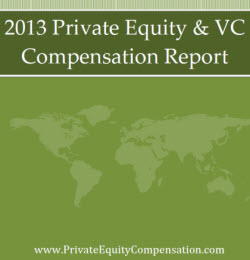Private equities are net sellers in the current market as they continue to take advantage of the favorable environment for sellers to dispose-off investments they’ve been stuck with for years. According to data by research firm Preqin, there has been no letup in the pace of private equity exits in the most recent quarter ended June 30. On the contrary, the dollar value of private equity exits in the second quarter hit the highest level for a quarter since the 2008 financial crisis reaching $138 billion for the quarter, up 50 percent over the $92 billion in last year’s second quarter, which in itself was a strong quarter for exits.
More Selling Than Buying
 The Preqin data reveals that during the second quarter, there were a total of 392 exits yielding private equity firms $138 billion. While the dollar value of exits is the highest for a quarter since 2008, the number of exits is the second highest for a quarter since the financial crisis, only behind last year’s fourth quarter which witnessed 405 exits. In comparison, the first quarter saw 331 private equity exits resulting in value of $90 billion.
The Preqin data reveals that during the second quarter, there were a total of 392 exits yielding private equity firms $138 billion. While the dollar value of exits is the highest for a quarter since 2008, the number of exits is the second highest for a quarter since the financial crisis, only behind last year’s fourth quarter which witnessed 405 exits. In comparison, the first quarter saw 331 private equity exits resulting in value of $90 billion.
The deal-making activity of private equity firms however is not seeing a similar pickup. There were 743 private equity-backed buyout deals during the quarter, valued at $78 billion. The value was below the $82 billion in the first quarter which resulted from 10 fewer (733) deals. Deal value focused on North American businesses totaled $39 billion during the second quarter, a 20 percent decrease compared to the first quarter.
During the second quarter, private equity firms were able to profitably get rid of some of their pre-crisis period investments. The largest PE exit during the quarter was the sale of Indiana medical device firm Biomet Inc for $13.4 billion. Private equities Blackstone Group, KKR and TPG had purchased the company for $11.4 billion at the height of the buyout boom in 2006. Another notable exit during the quarter was the $2.5 billion sale of dairy products maker Michael Foods by private equity Thomas H Lee Partners, which had initially purchased the firm in 2003 for $1 billion.
PE Shoppers Frustrated With Valuation
As of July, private equities had uninvested capital commonly referred to as “dry powder” of $1.16 trillion, an all-time high. This comes despite private equities returning to investors a record $568 billion in 2013. Commenting on the lackluster activity in buyout deals despite the availability of large investable cash, Richard Parsons of Deloitte says it remains a sellers’ market which is driving pricing upwards and creates challenges for firms looking to deploy capital into new deals.
Lee Duran, who specializes in private equity practice at consulting firm BDO USA, says that the strong stock market that allowed PE firms to collect big profits in the past couple of years on their earlier investments is making it harder to find good investments now. He adds, “A lot of the private-equity sponsors I speak with are really frustrated at finding opportunities at a price they’re interested in.”
Relevance to Job Market
Private equities are, at the moment, in an enviable position – holding lot more money than they can invest. Generally holding surplus cash could have a positive impact on the job market as having more money gives the funds the flexibility in planning their expenses. But given the low level of buyout activity in recent times, it appears that many funds do not view the current market valuation favorably as a buyer and may not see a need to ramp up hiring when the perceived opportunities are few. As a result, the net positive impact on the job market if any is likely to be minimal.

